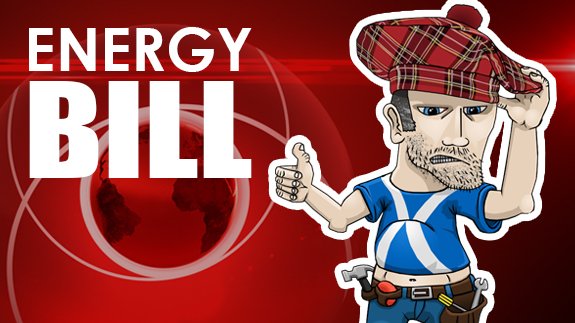Energy Bill has extensive experience working for suppliers, TPIs and other energy companies. Still employed in the industry, he writes exclusively for ELN on the energy issues of the day.
Many years ago, I worked for a supplier that owned a large Combined Heat & Power (CHP) unit around the corner from where William Wallace was hung, drawn and quartered in central London.
Thankfully the battle for Scottish independence has become a lot more sedate in the intervening centuries. Until recently, the CHP generated more heat than any debate about breaking up the UK.
With the Scottish independence referendum looming in September, knives are now being sharpened on both sides of the border. First we were told the Scots helped keep the lights on in the UK. Then DECC released an analysis of the effect of Scottish independence on the UK telling the Scots they were doomed to power outages and higher costs if they go it alone.
In order to arrive at figures that suggest an independent Scotland would suffer capacity shortages and increasing costs, DECC has assumed that there would be no electricity flows between England and Scotland. This ignores not just how the national grid is set up but also how things have worked in the past.
Until April 2005, Scottish energy was traded separately to the rest of the UK and energy flowed across the border freely with the system managed and kept in balance by National Grid.
There’s no reason to think that Scottish independence would prevent us returning to a similar set of arrangements, with the Scots operating their own market arrangements and energy flowing as required into the parts of the land mass that need it.
After all, this is how interconnectors across the continent work. DECC might have missed this but the pylons that form the spine of the UK grid don’t have an off-switch and I don’t think anyone’s going to cut the power lines that stretch across the border.
National Grid are neutral on the question of Scottish independence, taking the quite sensible view that the outcome won’t change anything in the short term and electricity will still flow in the way it always has regardless of market arrangements. It’s not clear to me why DECC would shift the goalposts in its analysis to arrive at a different conclusion except to try to score political points.
William Wallace wasn’t actually involved in a lot of the clashes featured in ‘Braveheart’, though he was famous for his “unchivalrous” tactics in battle. Today’s weapons of choice may be words rather than bows and axes but the fighting still seems to be as dirty as ever.





